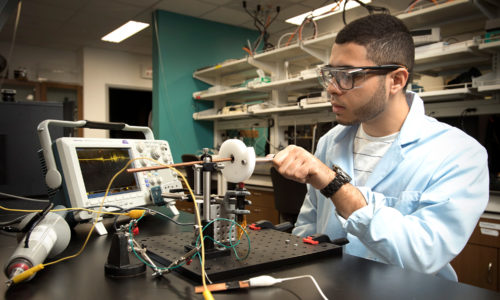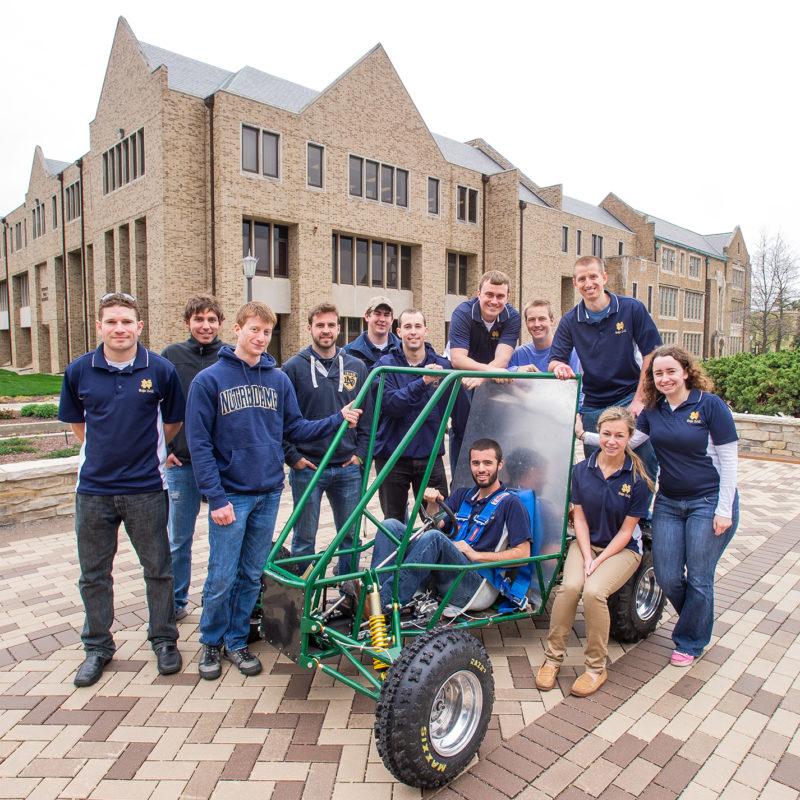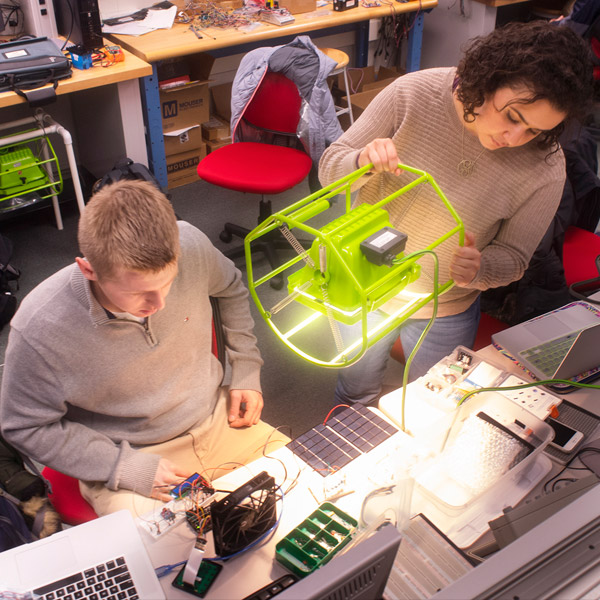Why study Aerospace and Mechanical Engineering at Notre Dame?
Our students and graduates work in a range of fields, including energy, aerospace, medicine, bioengineering, robotics, manufacturing, computational science, and many others. Upon graduation:
- 80% of our students enter industry
- 10% enter public service or the military
- 10% pursue graduate studies in engineering, medicine, law, or business.
Aerospace Engineering
The Aerospace Engineering program will prepare you to solve problems and advance the state of the art in the design and operation of aircraft and space vehicles, ranging from airplanes to satellites.
The curriculum is based on mathematics, physics, chemistry and the engineering sciences, with emphasis on basic aerospace disciplines such as aerodynamics and fluid mechanics, orbital mechanics, and solid and structural mechanics, and integrating disciplines such as design, experimental methods and systems analysis. Specializations are available in technical areas, including design and manufacturing; thermal and fluid sciences; bioengineering; solid mechanics; materials; control and mechanical systems; and computational engineering.
Aerospace Engineering Curriculum
Aerospace Engineering Coursemap
Mechanical Engineering
The Mechanical Engineering program will prepare you to design solutions to many of the greatest challenges facing humanity, with opportunities across a wide variety of technology sectors, including energy, transportation, robotics, and medical devices.
The curriculum is built on a foundation in mathematics, physics, chemistry and the engineering sciences. Through selection of elective courses, you’ll be able to specialize in a given sequence or to prepare as a generalist. Elective course sequences are available in aerospace, design and manufacturing, thermal and fluid sciences, bioengineering, solid mechanics, materials, control and mechanical systems, and computational engineering.
Mechanical Engineering Curriculum
Mechanical Engineering Pre-med Curriculum
Mechanical Engineering Coursemap
More information about Aerospace and Mechanical Engineering degree programs, including course requirements, minors and concentrations, and advising, are available in the AME Undergraduate Handbook (pdf).
Research and independent projects

As a student in Aerospace and Mechanical Engineering, you’ll have opportunities to be involved in research, either for course credit or as a paid research assistant. You’ll work alongside professors and graduate students in research labs conducting world-class, cutting-edge research. Independent projects, often with companies and partners from industry, can also be completed for credit.
Study abroad

Many AME students participate in Notre Dame Study Abroad for a semester or a summer. Some are designed especially for Aerospace and Mechanical Engineering students.
Rome AME Study Abroad
London AME Study Abroad
You also can take part in a 6-week summer program offered by the College of Engineering. International Programs for Engineers
Student clubs and community
AME students contribute to campus life and the engineering profession through a large variety of student clubs and organizations, including the Notre Dame Rocket Team, BajaSAE, NDSeed, Engineers Without Borders, the marching band, glee club, liturgical choir, and many others.

Contact
Prof. Michael Seelinger
Director of Undergraduate Studies
375 Fitzpatrick Hall of Engineering
mseelin1@nd.edu
Donna Fecher
Academic Program Administrator — Undergraduate Studies
365 Fitzpatrick Hall
dfecher@nd.edu
